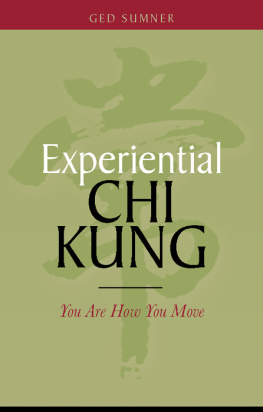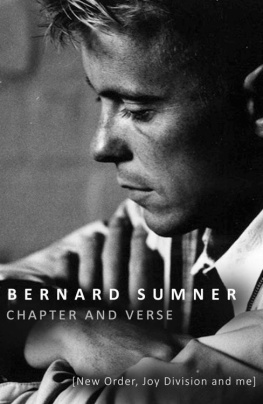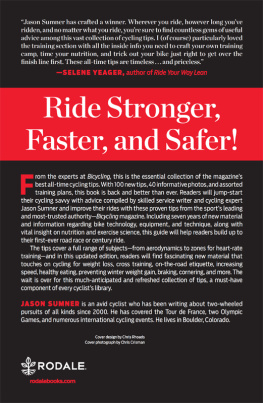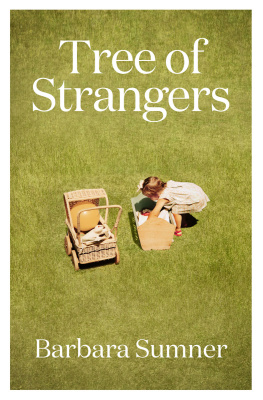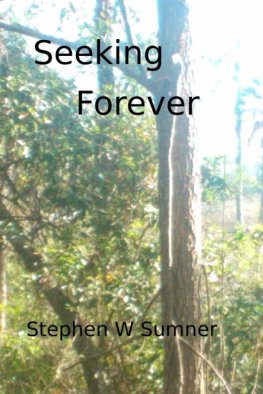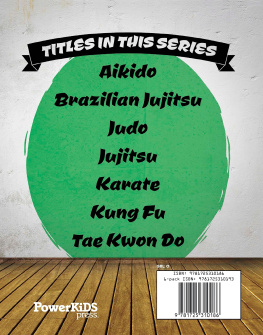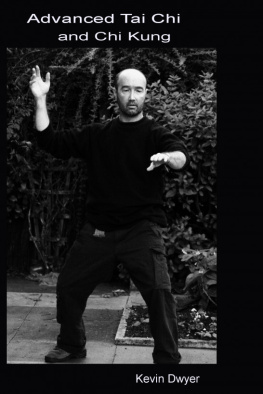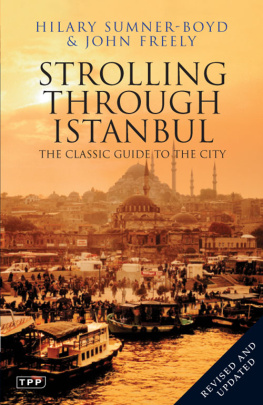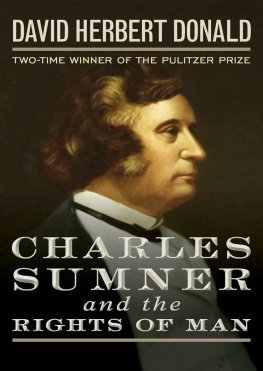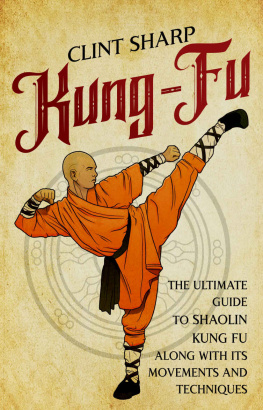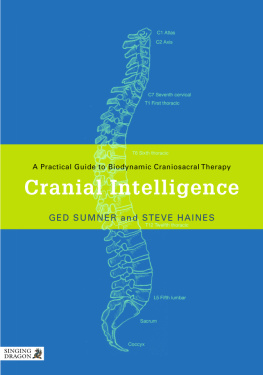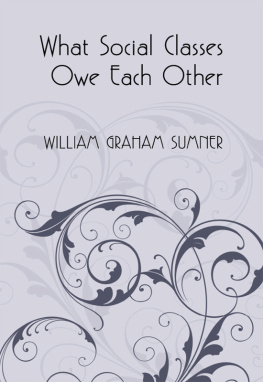Sumner - You are how you move: experiential chi kung
Here you can read online Sumner - You are how you move: experiential chi kung full text of the book (entire story) in english for free. Download pdf and epub, get meaning, cover and reviews about this ebook. City: London;Philadelphia, year: 2009, publisher: Jessica Kingsley Publishers, genre: Religion. Description of the work, (preface) as well as reviews are available. Best literature library LitArk.com created for fans of good reading and offers a wide selection of genres:
Romance novel
Science fiction
Adventure
Detective
Science
History
Home and family
Prose
Art
Politics
Computer
Non-fiction
Religion
Business
Children
Humor
Choose a favorite category and find really read worthwhile books. Enjoy immersion in the world of imagination, feel the emotions of the characters or learn something new for yourself, make an fascinating discovery.
You are how you move: experiential chi kung: summary, description and annotation
We offer to read an annotation, description, summary or preface (depends on what the author of the book "You are how you move: experiential chi kung" wrote himself). If you haven't found the necessary information about the book — write in the comments, we will try to find it.
You are how you move: experiential chi kung — read online for free the complete book (whole text) full work
Below is the text of the book, divided by pages. System saving the place of the last page read, allows you to conveniently read the book "You are how you move: experiential chi kung" online for free, without having to search again every time where you left off. Put a bookmark, and you can go to the page where you finished reading at any time.
Font size:
Interval:
Bookmark:
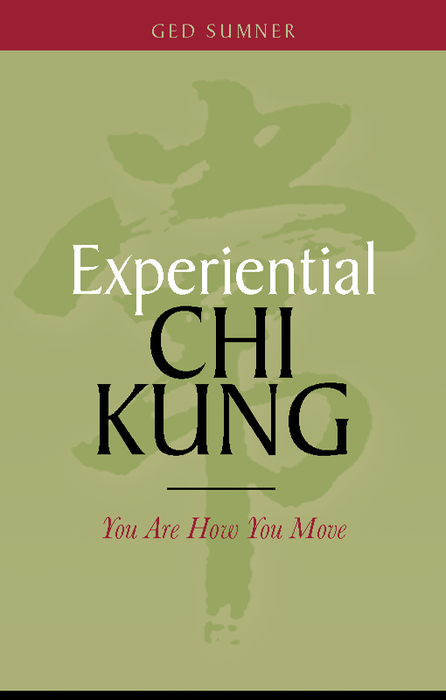
Ged Sumner

London and Philadelphia
Exercises in this book can be followed online at: www.naturalmovement.info
First published in 2009
by Singing Dragon
An imprint of Jessica Kingsley Publishers
116 Pentonville Road
London N1 9JB, UK
and
400 Market Street, Suite 400
Philadelphia, PA 19106, USA
www.singingdragon.com
Copyright Ged Sumner 2009
All rights reserved. No part of this publication may be reproduced in any material form (including photocopying or storing it in any medium by electronic means and whether or not transiently or incidentally to some other use of this publication) without the written permission of the copyright owner except in accordance with the provisions of the Copyright, Designs and Patents Act 1988 or under the terms of a licence issued by the Copyright Licensing Agency Ltd, Saffron House, 610 Kirby Street, London EC1N 8TS. Applications for the copyright owners written permission to reproduce any part of this publication should be addressed to the publisher.
Warning: The doing of an unauthorised act in relation to a copyright work may result in both a civil claim for damages and criminal prosecution.
Library of Congress Cataloging in Publication Data
A CIP catalog record for this book is available from the Library of Congress
British Library Cataloguing in Publication Data
A CIP catalogue record for this book is available from the British Library
ISBN 978 1 84819 014 6
eISBN 978 0 85701 002 5
Converted to eBook by EasyEPUB
Many thanks to the following people for giving up their time to be photographed: Ute Stenger, Jenny and Lyla Keogh, and Kim Michelle. Thank you to Chris OKane for taking many of the pictures, and Belinda Ackermann for taking some pictures. Deepest thanks go to Manuela Viana for her valuable and intelligent contributions to editing the book.
Ask people the question What is exercise? and you might find yourself getting remarkably consistent feedback. Exercise seems to generate images of humans engaged in strong physical activity such as sports, running, aerobics and workouts on machines at the gym. The picture of faces strained by physical exertion comes to mind, with varying degrees of enthusiasm. Few people regard warming up and stretching as an important factor, and some suggest that exercise is about creating stamina. Its an interesting question to ask, and on the whole most people seem to think that exercise is synonymous with going to the gym.
Then, theres the question of fitness. It seems that the ideal image or goal of exercising is to try to gain some approximation, if only a mediocre one, of the professional athlete at the peak of their performance. Whilst we may all have somewhat disappointed, but perhaps more realistic, understandings of our own limitations, at the back of our minds still lies the image of the perfect human form in peak fitness and performance. Surely theres nothing wrong in aiming for perfection? We all love to watch our supernatural heroes battle through every physical, psychological and emotional challenge to be the best, the ultimate Olympian champion. We all hold this gargantuan physical exertion in the highest regard, whether we are sport oriented or not.
It is inspiring to watch the skill, dedication, determination, talent and well-oiled synchronization of the human form all come together in an athlete to achieve an Olympic medal. In this arena the seemingly impossible suddenly becomes possible. It is here that the image of the perfect body enters our psyches and we set about unconsciously trying to achieve that dream body.
Hard-driven exercise might suit some people, but chasing an ideal image, fantasizing about producing a particular body look, losing weight and having a physical performance level that is only possible through tremendous effort is generally unattainable for most people, owing to the lack of time, motivation and dedication necessary. It immediately feels easier to give up before one even begins, for that perfect body image is set so high. Rather than become despondent, lets challenge the status quo and question our ideas of exercise and perhaps discover an easier, effective, attainable and enjoyable form of exercise.
Its no wonder that, when most of us consider the idea of exercise, it tends to make us feel immediately stressed. The idea of corporate-looking gyms, drilling exercise regimes, peer pressure and body image start to spoil the mind. Thats enough to stop many people from even starting and who can blame them? It does feel exhausting and over-demanding. The old maxim commands No pain, no gain, indicating that exercise in Western society is associated with enormous effort, and physical pain and strain.
The problem is that most exercise is focused on looking good and, in order to achieve this, having to pursue a monotonous exercise regime that doesnt fill you with inspiration, but gets results. The concept of simply feeling good, connected and healthy is of secondary concern. Unfortunately, many people dont realize theres an alternative; so, feeling unfulfilled at the gym, they either stop and start never really getting into it or persist and renew their membership, hoping that that will be enough of a motivation, but then dont turn up for weeks and feel guilty; or, exasperated and simply bored, stop exercising altogether, which will probably result in a total lack of movement and therefore lead to poor health.
Statistics say that most people dont exercise consistently beyond the age of thirty, beyond forty less than thirty per cent of the population are exercising at all, and increasingly people are becoming more sedentary each year. Its not hard to miss. Children are driven to school, adults travel in cars and trains, people watch television, spend more time browsing on the internet and play more computer games than ever before, and all this does is help their blood collect in their legs. We dont walk any more and most people are eating nutritionally poor diets or are overweight. In an age where you can eat excellent nutritional food, many people are still eating too much fat, sugar and salt, increasing their bulk and decreasing their metabolism. Western society is so wealthy theres actually an excess of food for the first time in the history of man, as well as the greatest variety of foodstuffs ever imaginable. The choice is so great its overwhelming. Despite the greatest wealth of intelligent literature and guidance on nutrition that has ever been available, the majority of people are poisoning themselves thanks to lack of food education and poor diet, while the rest of the world is malnourished from the lack of food.
In modern-day society theres an overwhelming tendency for everything to be stressful. Our basic activities in a day seem to be cloaked with an arrangement of stressful experiences; simple tasks are entangled with frustrating or challenging events and, unfortunately, our body is implicated in all this stress. It reveals this through its basic functioning from going to the loo, eating and drinking, to discomfort when exercising. Millions of people suffer from constipation, irritable bowels, chronic fatigue, poor nutrition, dehydration, obesity or poor body tone. Commonly, many of these symptoms go hand in hand. Its the sign of the times and a sign that a society is unhealthy. People are simply not coping with modern life and their bodies are suffering. Is it any wonder that depression is the biggest pathology of our time and Prozac one of the most prescribed drugs?
Font size:
Interval:
Bookmark:
Similar books «You are how you move: experiential chi kung»
Look at similar books to You are how you move: experiential chi kung. We have selected literature similar in name and meaning in the hope of providing readers with more options to find new, interesting, not yet read works.
Discussion, reviews of the book You are how you move: experiential chi kung and just readers' own opinions. Leave your comments, write what you think about the work, its meaning or the main characters. Specify what exactly you liked and what you didn't like, and why you think so.

